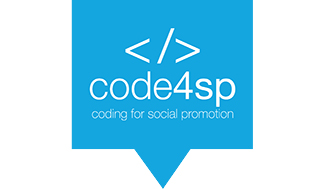Coding is everywhere. We see it all around the internet, each link we click, every page that appears on our screens, social media, apps, and all the daily activities that depend on tech gadgets. It surrounds us.
Learning how to code became a must-have in the XXI Century. But how do we do it? Should we attend a bootcamp? Go to university? Or just deeply committed to youtube?
There are too many options and too many paths, which could become overwhelming quickly. So, in this article, we have some tips that can help you shape your learning process and make you go in the right direction. In the end, the goal is to find a way to keep your motivation going and make it fun. Let's do it?
1) Ask yourself: why do you want to learn to code?
We can compare coding to writing. When we write, we write something, a story, an article, a diary. Each one of these forms has a different purpose and requires other skills. The same happens with coding. There are different languages, and they are used to create and build different types of projects. It's ok if you don't know right away which is the endgame, you can explore it with time.
Here you can find some ideas:
- Simple websites — like a landing page, a brochure site, a WordPress site, or even just a blog theme;
- Complex web apps — websites with more functionality that functions as an application.
- Native apps, like iPhone or Android apps
- Desktop applications
- Games
- Data processing & data science
- AI & machine learning
- Internet of Things (IoT)
2) Choose the right programming language
Now that you have an idea of what you want to do, it's easier to understand which language you should focus on. Coding requires at least one coding language, a set of syntax and rules that computers can understand. There are hundreds of coding languages, each one unique in its purpose. But, some languages are more accessible to learn than others. Below are some languages widely considered suitable for beginner coders:
HTML & CSS:
Hypertext Markup Language, or HTML, isn't technically a programming language because it doesn't execute scripts, and you can't build functional programs with it but is the foundation of the internet. It's used to set the content of web pages, but it doesn't stylish them. Here is when CSS (Cascading Style Sheets) joins the conversation and sets features like colors, sizing fonts, and even entire page layouts. When you combine both, you can start creating nice web pages.
HTML and CSS are easy to learn because they don't require you to think through the computational logic of programming languages. Learning HTML and CSS can also feel less abstract than other languages since you quickly see your code results.
But if you want your web pages to do something, you need to learn...
JAVASCRIPT:
JavaScript is the programming language that makes static web pages become dynamic ones. It enables page elements to move, react to user actions like clicks, and handle any operation beyond simply existing on the page. If you're interested in web development and already feel for HTML and CSS, JavaScript is the next step. Together, they make the majority of web content you see.
Apart from these, you can search for other programming languages for beginners, such as Python, C followed by C++, and Java (and yes, it's a different programming language than JavaScript).
3) Commit: set a goal and a schedule and stick with it
Now you know why you want to start coding and what you need to learn, we get to the how. In the beginning, it's easy to be motivated, everything is new, and you're eager to learn, but time goes by, and you start getting lazy, or your priorities change.
That's why regardless of whether you learn from a book about a specific programming language, or join a boot camp, or start watching videos on youtube, you need to be realistic and set a timeline.
If you're in an informal learning program, it may help you decide how many hours per day you want to spend on it, divide your program into steps, and choose when you want to have it finished. Remember that you can always adjust your schedule.
If you're in a formal learning program, try to be up to date with the lessons, and if something is not working for you, ask the teachers how you could do it differently.
4) Find a mentor and a community
Becoming a programmer could be a very lonely path. That's why having a mentor and a community helps you feel part of something else, and you find people with whom you can discuss your questions and challenge yourself.
A mentor can be anyone knowledgeable in your language, explaining complex concepts and pointing you to solutions. They can help you establish good working practices from the start. They can guide you in the process and teach you what not to do. Besides, they will push you to be on track and learn faster.
In addition to being a mentor, you may want to get involved in a community. Look for online groups, networking events and meetups in your area, and hackathons where you can make connections with experienced programmers.
To finish up, remember that coding is more than writing; it's about time you spend thinking before you write it; it's problem-solving.
References:
"CTOs tips for how to start coding"
https://careerfoundry.com/en/blog/web-development/learn-to-code/#a-ctos-tips-for-how-to-start-coding
- "I Want to Learn Programming, but I Don't Know where to Start"
https://codeburst.io/i-want-to-learn-programming-but-i-dont-know-where-to-start-80dd2d55e1fd
- "How to Start Coding: The Ultimate Guide for Beginner Programmers"
https://blog.hubspot.com/website/how-to-start-coding
- "14 Great Ways to Teach Yourself to Code"
https://lifehacker.com/top-10-ways-to-teach-yourself-to-code-1684250889
- "How to Get Started With Learning to Code"
https://moviesgamesandtech.com/2021/11/03/how-to-get-started-with-learning-to-code/
- "Learning to Code: Where to Start"
https://medium.com/swlh/learning-to-code-where-to-start-fb8b14d69f5e






